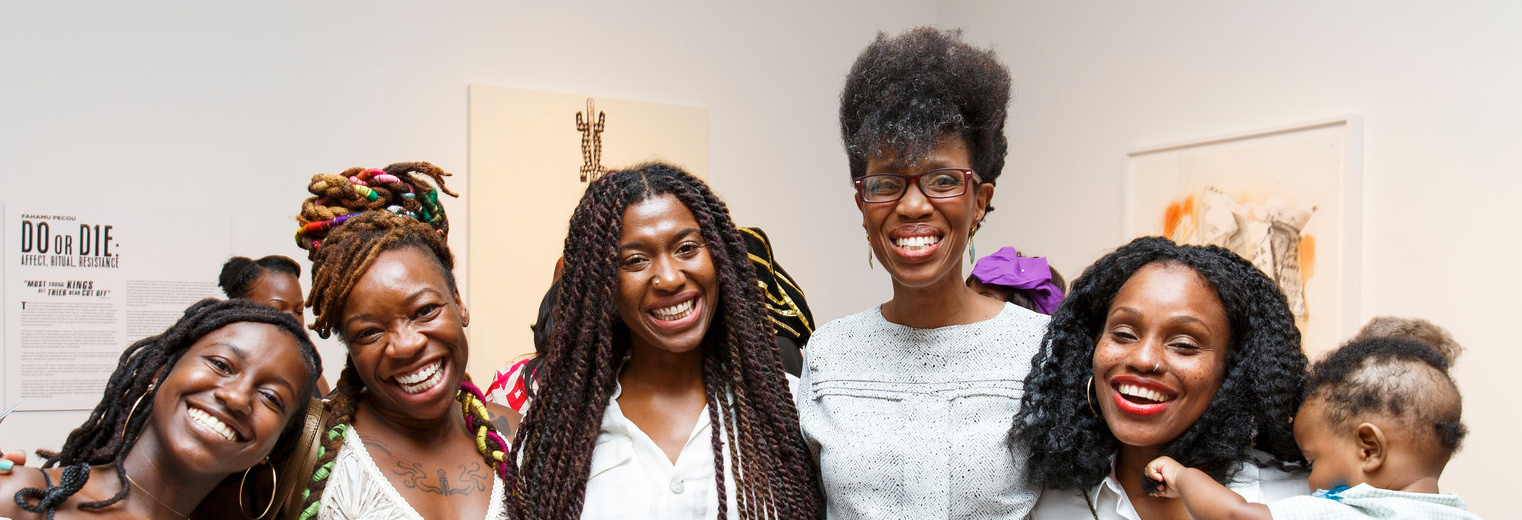

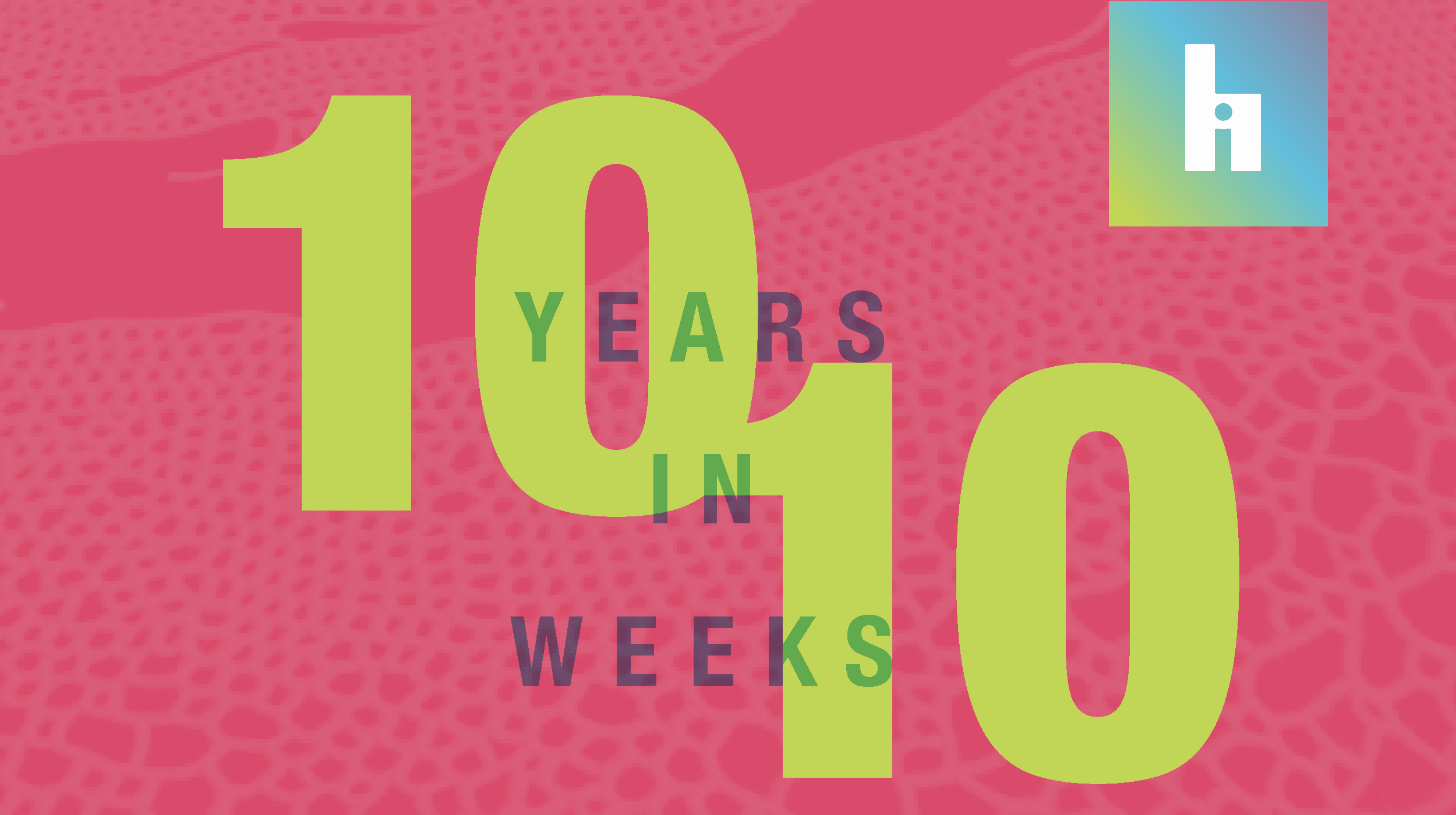
An entirely virtual exhibition, 10/10: Reflections on a Decade of Exhibitions celebrates ten years of exhibitions, partnerships, and programs produced in the Halsey Institute of Contemporary Art’s current gallery space inside the Marion and Wayland H. Cato Jr. Center for the Arts at the College of Charleston. We are spending summer 2020 taking a look back on the adventurous artists we’ve hosted and projects we’ve produced in that time. Over ten weeks, we will be taking a deep dive into each year, featuring blog posts on exhibitions, interviews with artists, and other explorations into the Halsey Institute’s past. This week we are profiling our exhibitions from the year 2013.
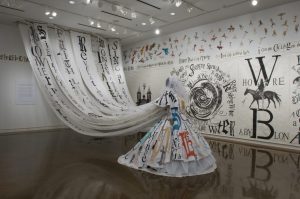
Lesley Dill’s Poetic Visions: From Shimmer to Sister Gertrude Morgan, installation view, 2013. Courtesy the artist. Photo: Rick Rhodes.
In January, we featured the exhibition Lesley Dill’s Poetic Visions: From Shimmer to Sister Gertrude Morgan. With this show, Dill explores the relationship between text and image. Referencing the self-taught artist Sister Gertrude Morgan’s divinely inspired paintings, Dill renders transformational experience into visual forms in this installation.
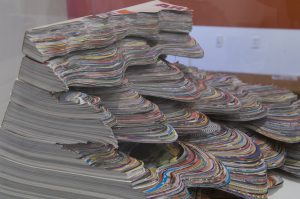
Francesca Pastine work from Rebound: Dissections and Excavations in Book Art, installation view, 2013. Photo: Rick Rhodes.
In May, the Halsey presented Rebound: Dissections and Excavations in Book Art. This group show explored how artists are investigating the function, structure, and format of books. In this show, books serve not only as sculptural media, but as source material to explore the topographies of our own society.
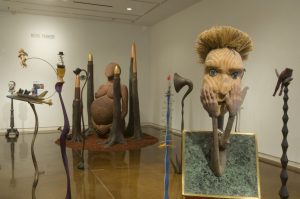
Herb Parker, Studio Practice, installation view, 2013. Courtesy the artist. Photo: Rick Rhodes.
In the fall, the Halsey featured College of Charleston sculpture professor Herb Parker’s oversized work in a show called Studio Practice. This exhibition juxtaposed Parker’s signature large-scale objects with his collections of items from his studio that serve as inspiration—or sometimes the basis of larger works themselves.
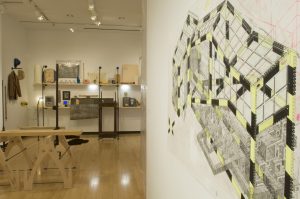
Joseph Burwell: School of the Viking Spaniard Revisited, installation view, 2013. Courtesy the artist. Photo: Rick Rhodes.
Concurrent with Parker’s show was the exhibition Joseph Burwell: School of the Viking Spaniard Revisited. In this exhibition, which also explored an artist’s connection to their studio, Burwell presents a world engineered by a network of realms and technologies. Here, the artist peels back the curtain, offering viewers a glimpse into his creative practice.
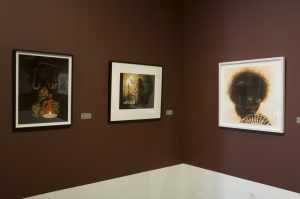
Renée Stout: Tales of the Conjure Woman, installation view, 2013. Courtesy the artist. Photo: Rick Rhodes.
Finally, the Halsey presented Renée Stout: Tales of the Conjure Woman, an exhibition in which the artist explores the vestiges of the African cultural tradition as manifested in contemporary America. For the show, the artist used the alter ego Fatima Mayfield as a vehicle to role-play and confront serious issues in a way that is open, creative, and humorous.